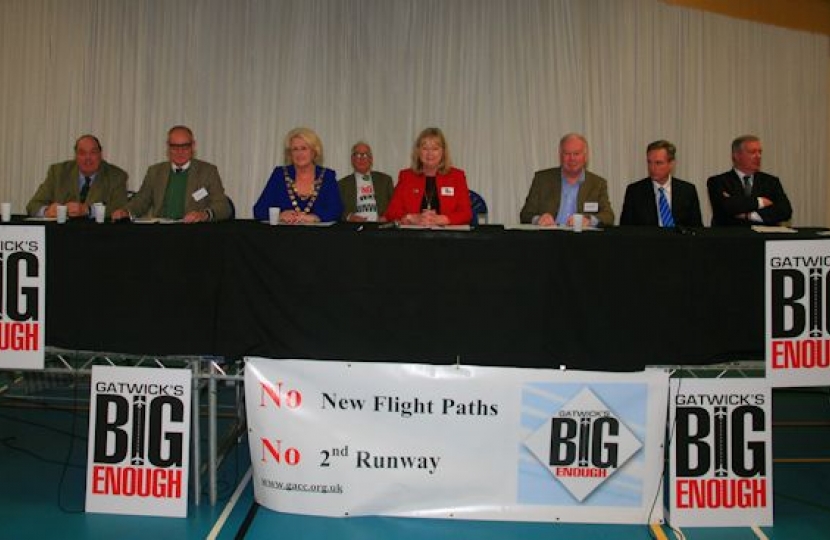
Members of the Gatwick Coordination Group welcome the Airports Commission’s endorsement of Heathrow as the location for the UK’s new runway.
The Airports Commission has made a clear decision in the national interest. The Commission was faced with a choice between a strong business case for Heathrow and an economically weak and practically inadequate case for Gatwick: a choice between around £100 billion greater national economic benefit and four times more new jobs spread across the UK flowing from Heathrow versus Gatwick which lacks resilient surface transport infrastructure and any available local labour force to staff the airport. Unsurprising, the Commission has found in favour of Heathrow, as a strongly unanimously preferred option as the significantly better option for Britain. The report clearly shows that Heathrow can expand whilst meeting the key economic, infrastructure and environmental tests.
We now call upon the Prime Minister to swiftly accept the Commission’s recommendation, to end any further uncertainty, and to get on providing the airport capacity Britain needs to compete for trade and investment and to remain an important aviation hub in the twenty-first century.
We also call on him to ensure that the Government’s consideration is free of individual constituency interests of senior Ministers and solely and transparently in the national interest.
Notes
Final Report
https://www.gov.uk/government/publications/airports-commission-final-report
The Gatwick Coordination Group (GCG) has highlighted the following shortcomings in the proposal made by Gatwick Airport Ltd. These have no doubt played a significant role in Sir Howard Davies’ rejection of Gatwick as the best option for the UK:
· By the Airports Commission’s own analysis, the Gatwick proposal has a £100 billion deficit on economic benefit to the UK compared to either of the Heathrow options.
· The absence of any serious plan to improve surface access to Gatwick, which is already at breaking point. As presented Gatwick’s proposal is not resilient with only one railway line connection on the most congested railway line in the country, that runs through the deepest cutting in Europe. Road access is by the highly congested A23/M23/M25. There are no proposals to address this absence of strategic surface access.
· Gatwick cannot explain how the required new workforce of 122,000 would be found. Total JSA claimants in the travel to work area around Gatwick are 20,861. Therefore, these workers would need to migrate to the region. Planning authorities cannot meet existing housing demand. The consequent impact on towns, communities and countryside is as unimaginable as the cost of new social infrastructure is wholly absent.
· Gatwick made a speculative argument that the global aviation market will move away from the proven hub model. In cities where two supposed hub airports have been developed (e.g. Tokyo Haneda and Toyko Narita or New York JFK and Newark International Airport) the airports have lost out to competing hub airports (Seoul and Chicago respectively). The Commission’s terms of reference required them to identify “additional capacity to maintain the UK’s position as Europe’s most important aviation hub”.
· There are serious questions over Gatwick’s financing and whether the company’s proposals would in reality be backed by its investors.
MPs on the Gatwick Coordination Group:
- Crispin Blunt MP – Member of Parliament for Reigate (Chairman)
- Sir Paul Beresford MP – Member of Parliament for Mole Valley
- Nusrat Ghani MP – Member of Parliament for Wealden
- Sam Gyimah MP – Member of Parliament for East Surrey
- Rt Hon Nick Herbert MP – Member of Parliament for Arundel and South Downs
- Jeremy Quin MP – Member of Parliament for Horsham
- Tom Tugendhat MBE MP – Member of Parliament for Tonbridge and Malling
- Henry Smith MP – Member of Parliament for Crawley
- Rt Hon Sir Nicholas Soames MP – Member of Parliament for Mid Sussex
The group also includes representatives of the neighbouring County Councils, Parish and Town Councils and civil society.

